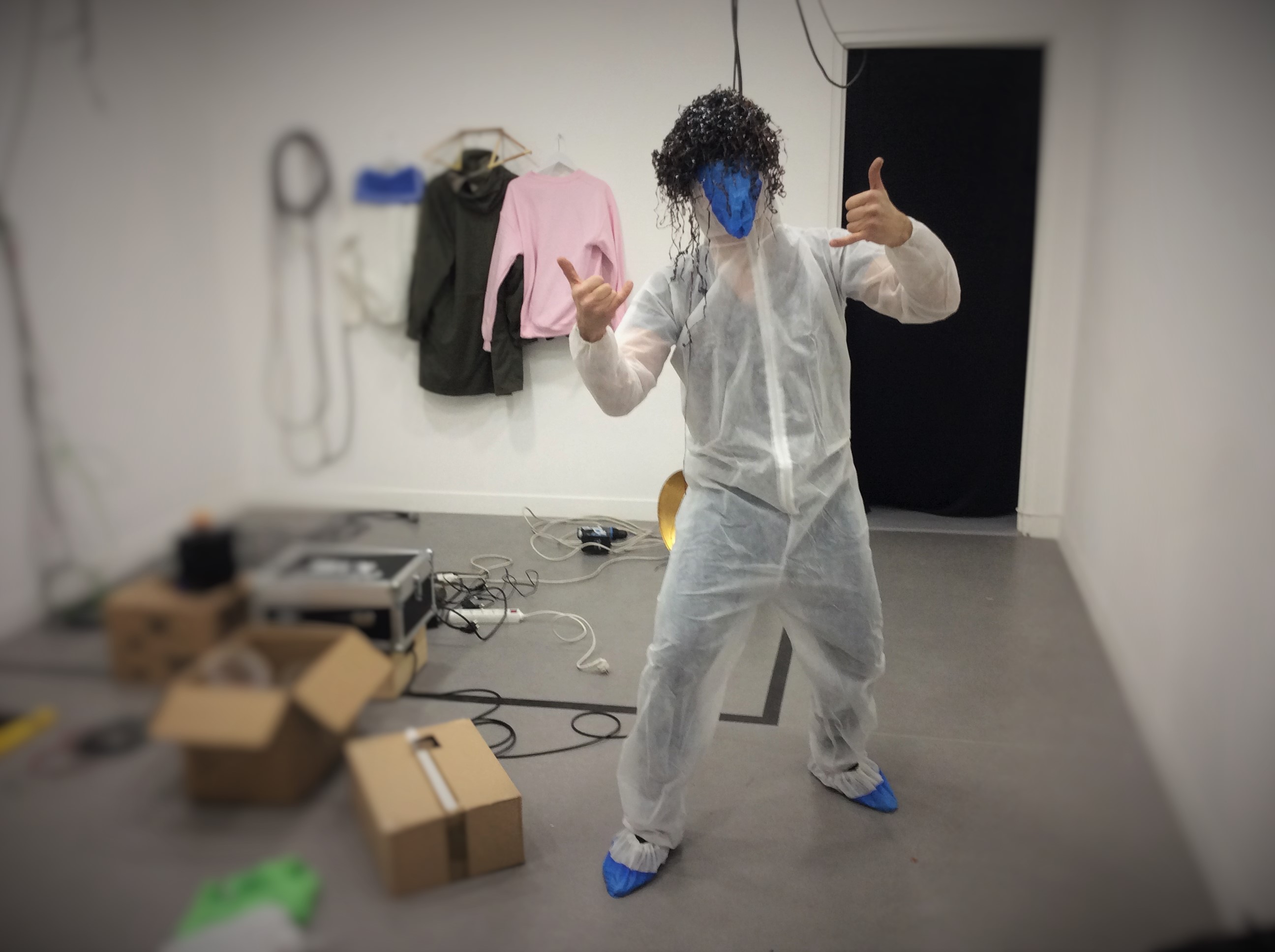When I arrived at Brighton’s Open Air Theatre, I was apprehensive about My Floorboards. After some research, you would think I knew what I was in for. I was prepared for Pierrot’s story: the fictional twin of schizophrenia sufferer Jeannot le Béarnaise. His breakdown culminated in him etching words into the floorboards of his family home; the erratic musical performance aimed for an insight into his broken mind.
An intriguing premise. But exactly how experimental would it be? How would lone actor (Pierre-Vincent Chapus) use a synthesiser to replicate Pierrot’s fragility? How successfully would the original French script translate? When I left the venue, thankful that the rain had eased for the show’s 45 minute run time, I was left with more questions than on arrival.
Chapus had huge responsibility in portraying Pierrot and commanding the space, but he delivered. The lonely stage needed filling, with only minimal set of a hand painted cloth representing the floorboards. But Chapus’ energy and passion kept me gripped despite the script constantly changing direction.
My Floorboards was not an easily accessible play due to its lack of linear plot and character interaction. Without context it would be difficult to establish how Pierrot got to this point. Seated at the side of the stage – the open air venue gave little room for theatrical trickery – Chapus then launched into several rounds of press ups and high kicks. “Don’t you understand what it’s all about?” he asked, staring at the sun dipping behind the theatre, streaking the sky with pink against ominous grey.
To begin with, I didn’t understand what it was all about. An outfit change transformed Pierrot from 70s fitness guru to tragic sailor as Chapus stepped back into the light. He spoke of his mother who had been buried in the family home, of her hands, of letting go before “Pierrot was left alone. Pierrot cried.”
This was when it started to sink in.
For me, the show warned of the dangers of solitude. The synthesiser and its strange X Files-esque sounds that played even before the show began, were crucial to Pierrot’s cry for help, or lack of. For a while it only returned static. Later though, Chapus began a manic chant that repeated the synthesiser’s words. Perhaps they came from a heroic rescuer, or perhaps they were just what Pierrot wanted to hear.
This kind of uncertainty was what made My Floorboards so unnerving. At points Pierrot was lost in his schizophrenia, convinced the church controlled human minds. At others, he was a traumatised child grieving his mother while processing the abuse he suffered from his father.
If this was theatre company Bubblegum Parfum Desert’s intention, they nailed it. Chapus conveyed the vulnerable Pierrot and switched between these states with ease. He let the audience into his grief and hardship at their own risk while, highlighting the struggles of the real life le Béarnaise.
I could write essays dissecting the script, spend hours researching its history and the methods of its actor, but it wouldn’t be necessary. My Floorboards was a play to be experienced and absorbed, without answering every question it raised.
So I let Chapus’ words wash over me like the darkness did. In closing, he began dismantling the synthesiser by unplugging each wire. This marked an end to his explosive energy as all fell quiet on stage. It seemed Pierrot reached similar peace as he wandered away, with only faint car engines whirring in the distance.
When the actor returned, reaping his applause, my friend and I exchanged “what did we just watch?” glances. But I think that was My Floorboards’ charm. While I was prepared to be confused by Pierrot, I didn’t expect a heartbreaking cry for help from an impassioned actor. All this fitted snugly under an hour with only a microphone and a tent sheltering the synthesiser from the British weather.
Featured Image: Clément Chebli





